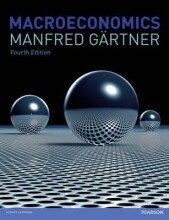Consumer Spending - Shifts of the Aggregate Consumption Function - Changes in Expected future disposable income
7 important questions on Consumer Spending - Shifts of the Aggregate Consumption Function - Changes in Expected future disposable income
What effect does bad news have on the aggregate consumption function?
- This is information that lead consumers to expect lower disposable income in the future than they expected before
- consumers will now spend less of their disposable income
- there will be a decrease in aggregate autonomous spending
- Graphically, the aggregate consumption function will shift to the left
What puzzling thougth does the theory of the consumption function solve
- while we think the people with less money spend less the theory claims that they tend to spend more than their income.
- people with higher current incomes save a larger fraction of ther income
What does the theory of consumptions say about low income families?
- those with lower income spend more than their incomes
- However, that doesn't mean the overall spending rate increases.
- People with lower income may have an unusually bad year, the might be laid off, and find a job eventually.
- they expect those jobs to pay higher so the start spending more than their income today
- so they tend to have low or negative saving.
- Higher grades + faster learning
- Never study anything twice
- 100% sure, 100% understanding
What does the theory of consumption say about hig income families
- people with high current incomes may have an unusually goods year, having successfull investment
- those people may expects their future income to be lower than their current income so they spend less and save more (to invest in the future)
- so their savings will be high
Although there may seem to be a strong relationship between current income and savings, What actually is true according to the theory of consumptions? What is this theory called?
- It is thought that when the economy grows peopple tend to have higher incomes now which leads to higher savings today
- However that is not the case
- higher expected future income, leads to lower savings today for the rich or the pooer
- which results to the conclusion that consumer spending depends on the income people expect to have than their current income in the long term.
- this theory is called permanent income hypothesis?
How does wealth have an effect on consumer spending?
- The accumulation of wealth determines how much people spend on consumption
- people who have accumulated wealth for their retirement and have fewer loans to pay off tend to spend more
- people who have not accumulated wealth tend to spend less of their income even though they have the same disposable income
- so wealth definitely has an effect on current income even though current disposable income is the same
- so graphically, a rise in aggregate wealth lead to an increase in autonomous spending which in turn shifts the aggregate consumption function to the right.
What economics model do we use to describe how consumer make choices about spending versus saving ? and why?
it also important in determining how or wealth affects consumer spending.
The question on the page originate from the summary of the following study material:
- A unique study and practice tool
- Never study anything twice again
- Get the grades you hope for
- 100% sure, 100% understanding































